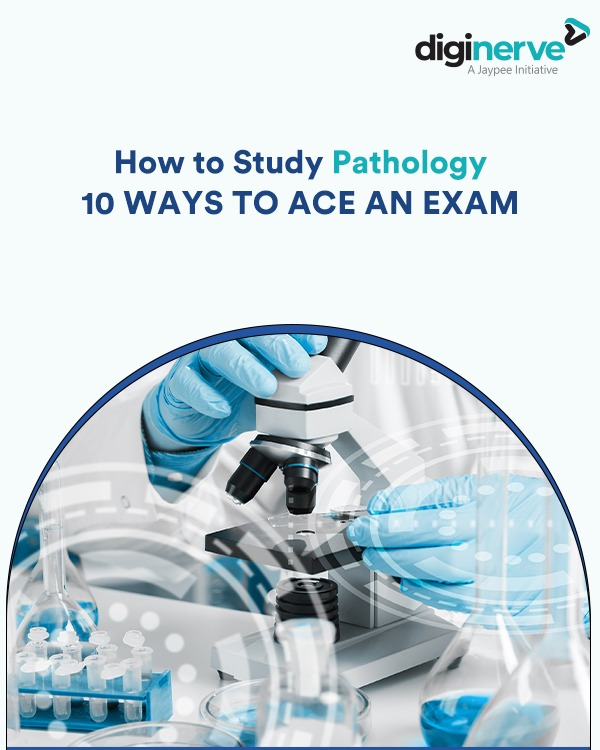An MBBS student studying pathology learns about cell injury, cell inflammation, and repair, as well as many diseases and disorders. For a reason, pathology is regarded as the mother of all subjects, that’s if you're studying medicine, nursing, or any other health-related degree that involves human lives, I believe pathology is one of the most vital subjects to study. Now that you're here, I'm guessing you're curious about how to study pathology in MBBS. You are more concerned about why a patient is displaying particular clinical signs and symptoms, as well as why you're conducting specific investigations and interventions.
Let us begin with how
to study pathology in MBBS.
The first thing you
must do is refer to the appropriate book. Harsh Mohan's“Textbook of Pathology” and Ramadas Nayak's “Exam Preparatory Manual for
Undergraduates – Pathology” are two of the best-known books amongst
students. And, to be honest, they're fantastic! It's time to start learning and
clearing your concepts now that you've chosen the correct book.
To make learning
easier, you can watch video lectures by the same authors besides your textbook.
You can access Prof. Harsh Mohan’s and Prof. Ramadas Nayak’s video lectures on the DigiNerveapp. Their course Pathology forUnderGrads has been developed as per the recent CBME curriculum.
The course is designed to assist students in preparing for their university
exams as well as NEET examinations.
Try making detailed
notes in the form of flow charts, diagrams, and shapes; stick the charts and
diagrams in your room to ensure that you see them as much as possible. This
will ensure you memorize the most important topics in the easiest way possible.
Now let’s strategize how to study for pathology exam.
1.
Don't
dismiss any topic; you must have some knowledge of each one.
2.
Study in a
systematic and disciplined manner; create a schedule that you can stick to with
zeal.
3.
Don't
waste time procrastinating; it will only compile the maximum for the final.
4.
Stick to
the timetable and set aside certain days for revision before the exam.
5.
Solve
previous years' question papers to obtain a sense of the type of questions that
will be asked. This will also help you to identify the topics that are
frequently asked in the exam and the topics that you must know.
6.
Time
management is essential. Assign subjects according to their length of content
and set deadlines for yourself to meet. Stick to the timetable without fail;
consistency will be highly fruitful at the time of exams. I assure you!
7.
In
Pathology, conceptual clarity is essential. In addition to your textbook, watch
Dr. Harsh Mohan’s & Ramadas Nayak’s lecture videos on DigiNerve, where you can also
access MCQs and lecture notes to understand the subject better while assessing
your knowledge simultaneously.
8.
Take notes
while you're learning. Memorizing topics is easier with notes that include
illustrations, tables, and flowcharts.
9.
Look for theoretical aspects with practical points to improve your practical understanding.
10.
Lastly, leave
considerable time for revision.
To know more, visit
DigiNerve and get access to video lectures, MCQs, and notes, accessible
anytime, anywhere.

Comments
Post a Comment